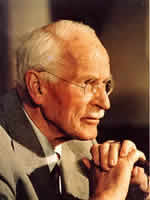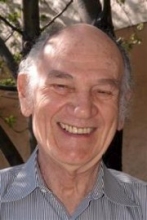Jerome received his Bachelor's and Master's degrees from George Washington University, in Washington, D.C., where he was born and lived until he moved to Santa Fe, New Mexico in 1992. He began his professional career in D.C. working with several non-profit educational and training organizations for people with mental and physical disabilities before becoming the Deputy Director of Manpower Training programs in the Federal Office of Economic Opportunity.
In 1971, he, along with a business partner, founded a new social science consulting firm, RJ Associates, through which he contracted with the Navajo nation. That same year, Native American tribes were given the right to take over the administration of selected programs from the federal government under the Indian Self-Determination Act. Within weeks, the Chairman of the Navajo Nation invited Jerome to become a consultant to assist with the development of a tribal Division of Education as well as being the Tribe's registered lobbyist on Capitol Hill. This one-week consulting assignment turned into a six-year professional relationship with the Navajo Tribe. He has maintained a thirty-five year relationship with friends and professionals and has been working to bring the wisdom of Navajo and Western healing together in a collaborative clinical model.
Through his contacts with the Navajo Nation, and particularly Carl N. Gorman, the Tribe's Director of the Office Native Healing Sciences, Jerome was exposed to Navajo religion and healing. This had a profound effect on him, and he began to have healing dreams that involved Navajo and Hopi medicine men. At the time, he explored these dreams in his Jungian analysis. Over time, he realized that these dreams were leading him onto a new path: he was to become a Jungian analyst. In 1980, he graduated from the C. G. Jung Institute in New York, becoming a Jungian analyst.
He has been in private practice since 1974. He was the founding president of the C. G. Jung Analysts Association of the Greater Washington, D.C. Metropolitan Area, vice-president of the C. G. Jung Institute of New York, and past-president of the C.G. Jung Institute of Santa Fe. He is currently on the teaching faculty of the C. G. Jung Institute of Santa Fe.
Bibliografia:
2010
Bernstein, Jerome S. (2010). An Interview: "Borderland Connections-Jerome Bernstein at 72" in Living with Jung: 'Enterviews' with Jungian Analysts by Robert and Janis Henderson, (Spring Journal Books: New Orleans, LA). Spring Journal.
Bernstein, Jerome S. (2010). Borderland Consciousness and the Borderland Personality: The Evolution of the Western Psyche's Reconnection with Nature.
2009
Bernstein, Jerome S. (2009). C.G. Jung and the Sioux Traditions: Dreams, Visions, Nature and the Primitive.
2008
Bernstein, Jerome S. (2008). Archetypal Reality in Politics. Spring Journal. 78,
2005
Bernstein, Jerome S. (2005). Living in the Borderland: The Evolution of Consciousness and the Challenge of Healing Trauma.
2003
Bernstein, Jerome S. (2003). "Collective Shadow Integration of the Jungian Community: Atonement" in: Jung and the Shadow of Anti-Semitism, Edited by Aryeh Maidenbaum, (2003 Nicolas-Hays, Inc. Berwick, ME).
2001
Bernstein, Jerome S. (2001). September 11th : Piercing Our Unconscious.
2000
Bernstein, Jerome S. (2000). On the Borderland. The Institute of Noetic Sciences Review. The Institute of Noetic Sciences Review.
Bernstein, Jerome S. (2000). Listening in the Borderlands. The Salt Journal, The Salt Institute, Santa Fe, New Mexico. 2(No. 2),
1994
Bernstein, Jerome S. (1994). "Beyond the Individual: Analytical Psychology Applied to Groups and Nations,"in: Carl Gustav Jung: Critical Assessments, Renow Popadopoulos, ed. (Routledge).
Bernstein, Jerome S. (1994). "An Archetypal Dilemma: The L. A. Riots" in The Shadow in America: Reclaiming the Soul of a Nation, Jeremiah Abrams, ed. (Nataraj Publishing).
Bernstein, Jerome S. (1994). "Genocide as an Archetypal Phenomenon" Unpublished paper presented at CIDSE-CARITAS International workshop on Rwanda, Leuven, Belgium.
1992
Bernstein, Jerome S. (1992). Penetrating the Archetypal Dilemma of Racism. Psychological Perspectives: A Journal of Global Consciousness, Issue 27, 1992.
1991
Bernstein, Jerome S. (1991). Victory in Irag?: A Question of Moral Consciousness. Psychological Perspectives: A Journal of Global Consciousness, No. 24, 1991.
Bernstein, Jerome S. (1991). "The U.S.-Soviet Mirror,"in: Meeting the Shadow: The Hidden Power of the Dark Side of Human Nature, Connie Zweig and Jeremiah Abrams eds. (Tarcher, Inc.).
Bernstein, Jerome S. (1991). "Workshop on Jung and Anti-Semitism"-Eleventh International Congress of the IAAP, in: Lingering Shadows, Aryeh Maidenbaum and Stephen A. Martin, Editors (Shambhala Publications, Inc., Boston: 1991).
1990
Bernstein, Jerome S. (1990). "Beings from within Us,"in: Dreams and Dreaming, (Time-Life Books, Inc.).
1989
Bernstein, Jerome S. (1989). Power and Politics: The Psychology of Soviet-American Partnership, Shambhala Publications, Inc., 1989.
1985
Bernstein, Jerome S. (1985). Power and Politics in the Thermonuclear Age: a Depth-Psychological Approach. Quadrant. Volume 18, ( No. 2),
Bernstein, Jerome S. (1985). Jung, Jungians and the Nuclear Peril. Psychological Perspectives: A Journal of Global Consciousness. Volume 16(No. 1),
1963
Bernstein, Jerome S. (1963). Teaching the Mentally Retarded to Read. Journal of Rehabilitation. XXIX(5),


.jpg)

 (Opracowane na podstawie przedmowy Jerzego Prokopiuka do pracy: "Odpowiedzi Hiobowi" Carla Gustava Junga, Wyd. "Ethos", Warszawa 1995)
(Opracowane na podstawie przedmowy Jerzego Prokopiuka do pracy: "Odpowiedzi Hiobowi" Carla Gustava Junga, Wyd. "Ethos", Warszawa 1995)